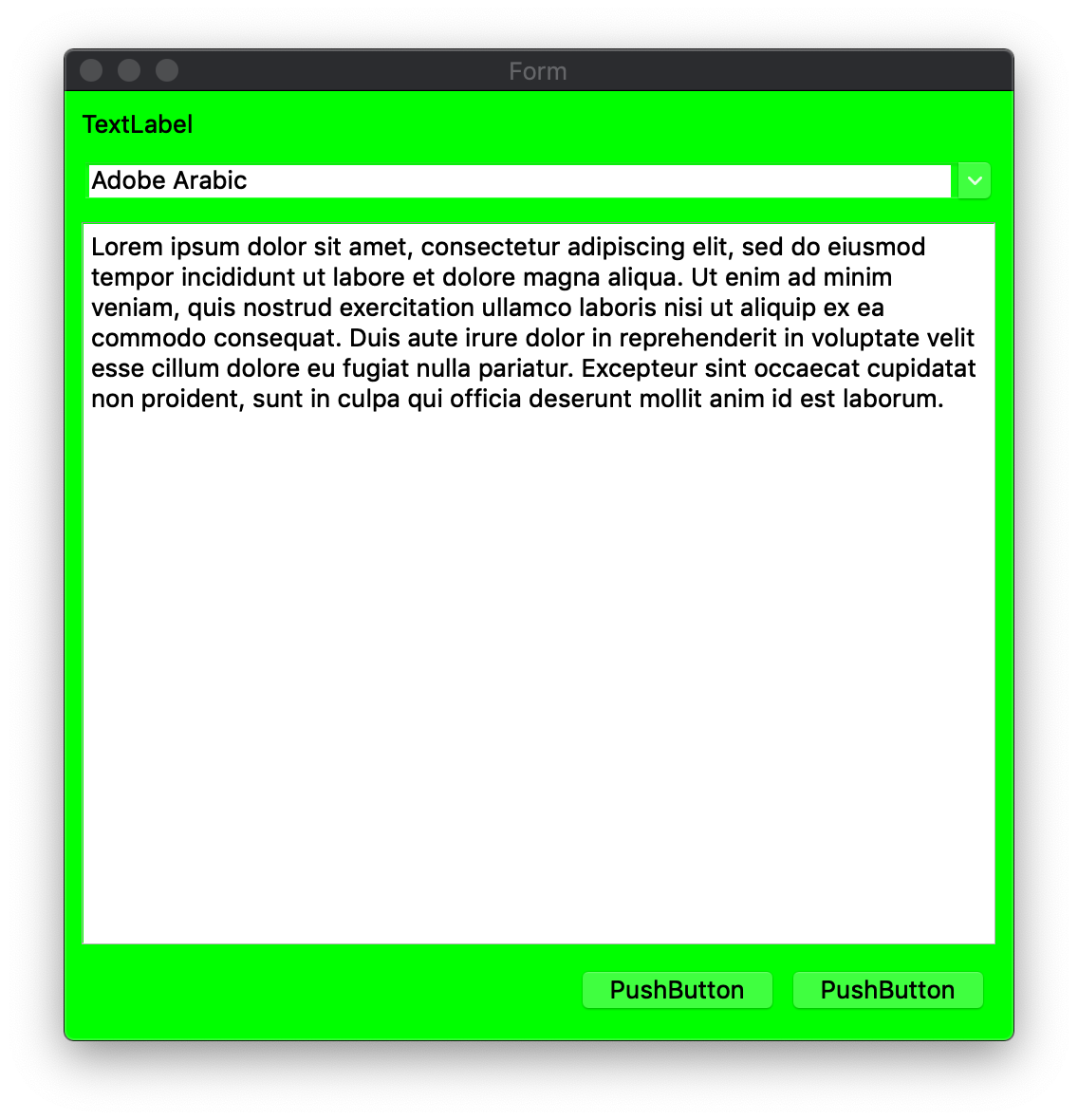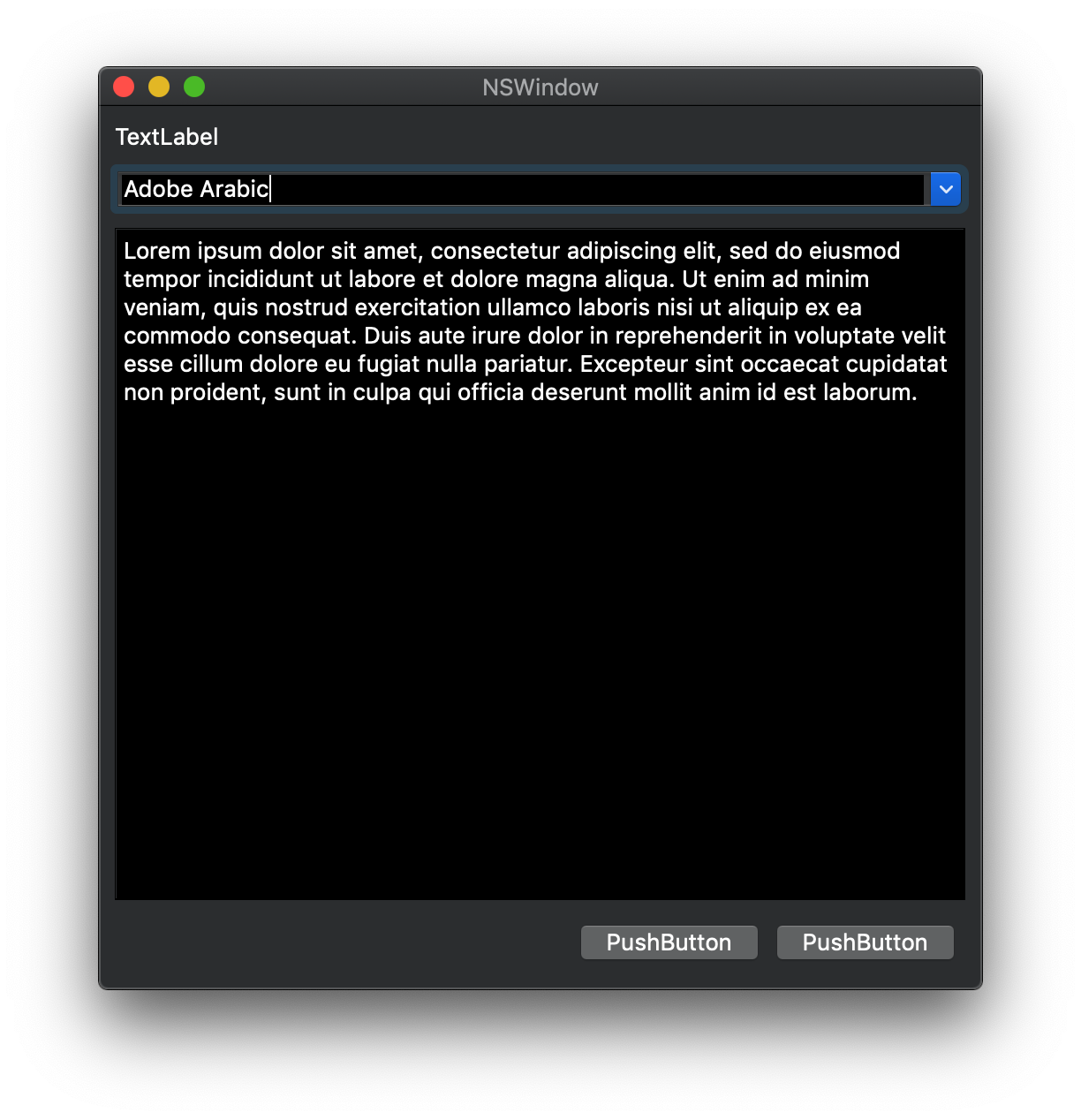This repository reproduces a problem with the interaction of QMacNativeWidget and QApplication::setPalette().
The reason changes to the application palette do not affect QMacNativeWidget is that its constructor sets the palette explicitly. Once the palette is set explicitly, changes to the application palette no longer propagate through the widget.
The simple solution is to just reset the palette to the default palette by using:
setPalette( QPalette() );
Once this is done, change to the application palette start affecting the widget and its children.
The new directory cocoa-ok contains a working version.
qmake
make
The result are two applications, one using QMacNativeWidget at cocoa/cocoa.app and one using pure Qt at pure-qt/pure-qt.app.
The startup code is taken as-is from the examples/widgets/mac/qmacnativewidget sample. The only difference is using a .ui file to construct the UI instead of placing widgets manually.
The widget code is as follows.
#pragma once
#include <QMacNativeWidget>
#include "ui_form.h"
class MacNativeForm :
public QMacNativeWidget
{
Q_OBJECT
public:
MacNativeForm()
{
ui.setupUi(this);
QApplication::setPalette( QPalette(Qt::red, Qt::green) );
}
private:
Ui::Form ui;
};Changing the palette changes the appearance of all the widgets.
Changing the palette does not change the appearance of all the widgets.

